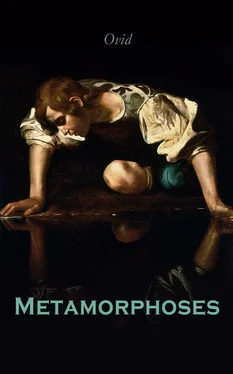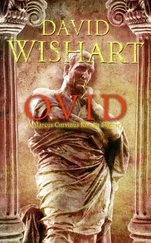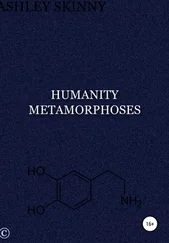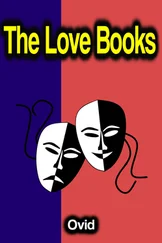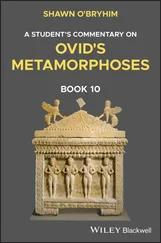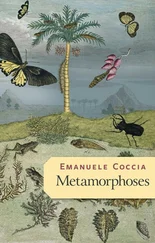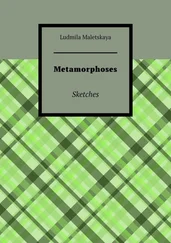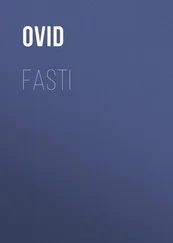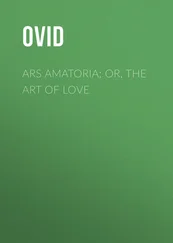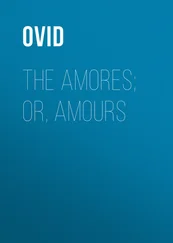Ovid - Metamorphoses
Здесь есть возможность читать онлайн «Ovid - Metamorphoses» — ознакомительный отрывок электронной книги совершенно бесплатно, а после прочтения отрывка купить полную версию. В некоторых случаях можно слушать аудио, скачать через торрент в формате fb2 и присутствует краткое содержание. Жанр: unrecognised, на английском языке. Описание произведения, (предисловие) а так же отзывы посетителей доступны на портале библиотеки ЛибКат.
- Название:Metamorphoses
- Автор:
- Жанр:
- Год:неизвестен
- ISBN:нет данных
- Рейтинг книги:3 / 5. Голосов: 1
-
Избранное:Добавить в избранное
- Отзывы:
-
Ваша оценка:
- 60
- 1
- 2
- 3
- 4
- 5
Metamorphoses: краткое содержание, описание и аннотация
Предлагаем к чтению аннотацию, описание, краткое содержание или предисловие (зависит от того, что написал сам автор книги «Metamorphoses»). Если вы не нашли необходимую информацию о книге — напишите в комментариях, мы постараемся отыскать её.
Metamorphoses — читать онлайн ознакомительный отрывок
Ниже представлен текст книги, разбитый по страницам. Система сохранения места последней прочитанной страницы, позволяет с удобством читать онлайн бесплатно книгу «Metamorphoses», без необходимости каждый раз заново искать на чём Вы остановились. Поставьте закладку, и сможете в любой момент перейти на страницу, на которой закончили чтение.
Интервал:
Закладка:
FABLE III.
The sisters of Phaëton are changed into poplars, and their tears become amber distilling from those trees.
The Hesperian Naiads 56commit his body, smoking from the three-forked flames, to the tomb, and inscribe these verses on the stone:—“Here is Phaëton buried, the driver of his father’s chariot, which if he did not manage, still he miscarried in a great attempt.” But his wretched father had hidden his face, overcast with bitter sorrow, and, if only we can believe it, they say that one day passed without the sun. 57The flames afforded light; and so far , there was some advantage in that disaster. But Clymene, after she had said whatever things were to be said amid misfortunes so great, traversed the whole earth, full of woe, and distracted, and tearing her bosom. And first seeking his lifeless limbs, and then his bones, she found his bones, however, buried on a foreign bank. She laid herself down on the spot; and bathed with tears the name she read on the marble, and warmed it with her open breast. The daughters of the Sun mourn no less, and give tears, an unavailing gift, to his death; and beating their breasts with their hands, they call Phaëton both night and day, who is doomed not to hear their sad complaints; and they lie scattered about the tomb.
The Moon had four times filled her disk, by joining her horns; they, according to their custom (for use had made custom), uttered lamentations; among whom Phaëthusa, the eldest of the sisters, when she was desirous to lie on the ground, complained that her feet had grown stiff; to whom the fair Lampetie attempting to come, was detained by a root suddenly formed. A third, when she is endeavoring to tear her hair with her hands, tears off leaves; one complains that her legs are held fast by the trunk of a tree, another that her arms are become long branches. And while they are wondering at these things, bark closes upon their loins; and by degrees, it encompasses their stomachs, their breasts, their shoulders, and their hands; and only their mouths are left uncovered, calling upon their mother. What is their mother to do? but run here and there, whither frenzy leads her, and join her lips with theirs , while yet she may? That is not enough; she tries to pull their bodies out of the trunks of the trees , and with her hands to tear away the tender branches; but from thence drops of blood flow as from a wound. Whichever of them is wounded, cries out, “Spare me, mother, O spare me, I pray; in the tree my body is being torn. And now farewell.” The bark came over the last words.
Thence tears flow forth; and amber distilling from the new-formed branches, hardens in the sun; which the clear river receives and sends to be worn by the Latian matrons.
FABLE IV.
Cycnus, king of Liguria, inconsolable for the death of Phaëton, is transformed into a swan.
Cycnus, the son of Sthenelus, 58was present at this strange event; who, although he was related to thee, Phaëton, on his mother’s side, was yet more nearly allied in affection. He having left his kingdom (for he reigned over the people and the great cities of the Ligurians 59) was filling the verdant banks and the river Eridanus, and the wood, now augmented by the sisters, with his complaints; when the man’s voice became shrill, and gray feathers concealed his hair. A long neck, too, extends from his breast, and a membrane joins his reddening toes; feathers clothe his sides, and his mouth holds a bill without a point. Cycnus becomes a new bird; but he trusts himself not to the heavens or the air, as being mindful of the fire unjustly sent from thence. He frequents the pools and the wide lakes, and abhorring fire, he chooses the streams, the very contrary of flames.
Meanwhile, the father of Phaëton, in squalid garb, and destitute of his comeliness, just as he is wont to be when he suffers an eclipse of his disk, abhors both the light, himself, and the day; and gives his mind up to grief, and adds resentment to his sorrow, and denies his services to the world. “My lot,” says he, “has been restless enough from the very beginning of time, and I am tired of labors endured by me, without end and without honor. Let any one else drive the chariot that carries the light. If there is no one, and all the Gods confess that they cannot do it, let Jupiter himself drive it; that, at least, while he is trying my reins, he may for a time lay aside the lightnings that bereave fathers. Then he will know, having made trial of the strength of the flame-footed steeds, that he who did not successfully guide them, did not deserve death.”
All the Deities stand around the Sun, as he says such things; and they entreat him, with suppliant voice, not to determine to bring darkness over the world. Jupiter, as well, excuses the hurling of his lightnings, and imperiously adds threats to entreaties. Phœbus calls together his steeds, maddened and still trembling with terror, and, subduing them, vents his fury both with whip and lash; for he is furious, and upbraids them with his son, and charges his death upon them.
EXPLANATION.
Plutarch places the tomb of Phaëton on the banks of the river Po; and it is not improbable that his mother and sisters, grieving at his fate, ended their lives in the neighborhood of his tomb, being overcome with grief, which gave rise to the story that they were changed into the poplars on its banks, which distilled amber. Some writers say, that they were changed into larch trees, and not poplars. Hesiod and Pindar also make mention of this tradition. Possibly, Cycnus, being a friend of Phaëton, may have died from grief at his loss, on which the poets graced his attachment with the story that he was changed into a swan. Apollodorus mentions two other persons of the name of Cycnus. One was the son of Mars, and was killed before Troy; the other, as Hesiod tells us, was killed by Hercules. Lucian, in his satirical vein, tells us, that inquiring on the banks of the Po for the swans, and the poplars distilling amber, he was told that no such things had ever been seen there; and that even the tradition of Phaëton and his sisters was utterly unknown to the inhabitants of those parts.
FABLE V.
Jupiter, while taking a survey of the world, to extinguish the remains of the fire, falls in love with Calisto, whom he sees in Arcadia; and, in order to seduce that Nymph, he assumes the form of Diana. Her sister Nymphs disclose her misfortune before the Goddess, who drives her from her company, on account of the violation of her vow of chastity.
But the omnipotent father surveys the vast walls of heaven, and carefully searches, that no part, impaired by the violence of the fire, may fall to ruin. After he has seen them to be secure and in their own full strength, he examines the earth, and the works of man; yet a care for his own Arcadia is more particularly his object. He restores, too, the springs and the rivers, that had not yet dared to flow, he gives grass to the earth: green leaves to the trees; and orders the injured forests again to be green. While thus he often went to and fro, he stopped short on seeing a virgin of Nonacris, and the fires engendered within his bones received fresh heat. It was not her employment to soften the wool by teasing, nor to vary her tresses in their arrangement; while a buckle fastened her garment, and a white fillet her hair, carelessly flowing; and at one time she bore in her hand a light javelin, at another, a bow. She was a warrior of Phœbe; nor did any Nymph frequent Mænalus, more beloved by Trivia, 60than she; but no influence is of long duration. The lofty Sun had now obtained a position beyond the mid course, when she enters a grove which no generation had ever cut. Here she puts her quiver off from her shoulders, and unbends her pliant bow, and lies down on the ground, which the grass had covered, and presses her painted quiver, with her neck laid on it. When Jupiter saw her thus weary, and without a protector, he said, “For certain, my wife will know nothing of this stolen embrace; or, if she should chance to know, is her scolding, is it, I say , of such great consequence?”
Читать дальшеИнтервал:
Закладка:
Похожие книги на «Metamorphoses»
Представляем Вашему вниманию похожие книги на «Metamorphoses» списком для выбора. Мы отобрали схожую по названию и смыслу литературу в надежде предоставить читателям больше вариантов отыскать новые, интересные, ещё непрочитанные произведения.
Обсуждение, отзывы о книге «Metamorphoses» и просто собственные мнения читателей. Оставьте ваши комментарии, напишите, что Вы думаете о произведении, его смысле или главных героях. Укажите что конкретно понравилось, а что нет, и почему Вы так считаете.
